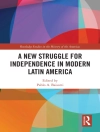How the English Reformation was Named analyses the shifting semantics of ‘reformation’ in England between the fifteenth and seventeenth centuries. Originally denoting the intended aim of church councils, ‘reformation’ was subsequently redefined to denote violent revolt, and ultimately a series of past episodes in religious history. But despite referring to sixteenth-century religious change, the proper noun ‘English Reformation’ entered the historical lexicon only during the British civil wars of the 1640s. Anglican apologists coined this term to defend the Church of England against proponents of the Scottish Reformation, an event that contemporaries singled out for its violence and illegality. Using their neologism to denote select events from the mid-Tudor era, Anglicans crafted a historical narrative that enabled them to present a pristine vision of the English past, one that endeavoured to preserve amidst civil war, regicide, and political oppression. With the restoration of the monarchy and the Church of England in 1660, apologetic narrative became historiographical habit and, eventually, historical certainty.
Benjamin M. Guyer
How the English Reformation was Named [EPUB ebook]
The Politics of History, 1400-1700
How the English Reformation was Named [EPUB ebook]
The Politics of History, 1400-1700
قم بشراء هذا الكتاب الإلكتروني واحصل على كتاب آخر مجانًا!
لغة الإنجليزية ● شكل EPUB ● صفحات 240 ● ISBN 9780192689610 ● الناشر OUP Oxford ● نشرت 2022 ● للتحميل 3 مرات ● دقة EUR ● هوية شخصية 8445206 ● حماية النسخ Adobe DRM
يتطلب قارئ الكتاب الاليكتروني قادرة DRM












